| |
When my daughter Susie learned she would spend the 1992-93 school year in Japan as an exchange student from the Rotary Club in Klamath Falls, Oregon, we both puzzled over a map of Japan trying to find the city of Sendai.
Now, nearly 20 years later, I’ve watched images of a much different Sendai, a city leveled by March's devastating earthquake. Its epicenter was just 80 miles east of Sendai. Worse, much of the town was swept away by resulting tsunamis. Thousands are known dead and countless others remain missing.
For me, Sendai isn’t just another faraway place.
During the spring of 1993 I spent nearly a month in Japan, mostly traveling with Susie. We toured Kyoto and Tokyo, ordered fried octopus while watching a Japanese baseball game, had to forego a planned climb up Mount Fuji because of storms, rode the Bullet train and stayed in remote hostels. By the time of my visit she was speaking remarkably fluent Japanese. Those language skills and the friendships she shared with her host families gave us access to places and lifestyles not normally seen nor experienced by other foreigners. Thanks to her, we weren't completely strangers in a strange land. |
|
| |
|
|
| |
| |
Much of my stay was in Sendai, a northern Japanese city of more than a million people. I visited Susie’s school, ate memorably delicious meals with her host families, traveled to and soaked in nearby hot springs and, during morning runs along the city’s kaleidoscope of intertwining streets, learned why Sendai is known as the City of Trees. |
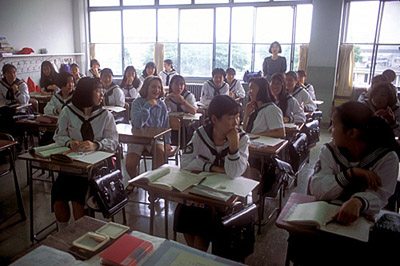
|
|
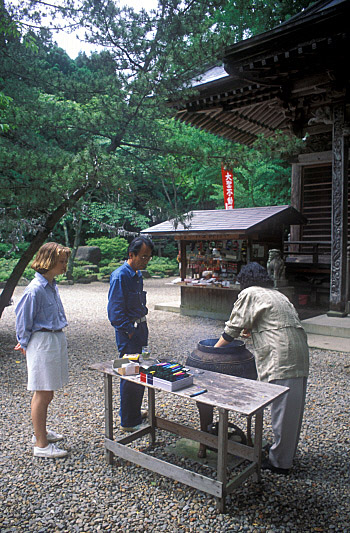 |
|
| |
Susie Juillerat with classmates in Sendai, Japan |
|
Susie Juillerat and Yuichi Kato at a shrine |
|
| |
|
|
|
|
| |
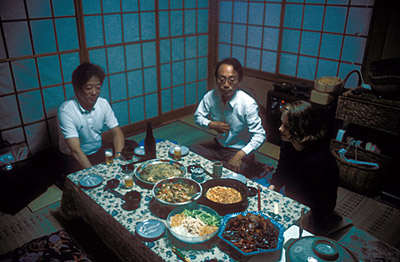 |
|
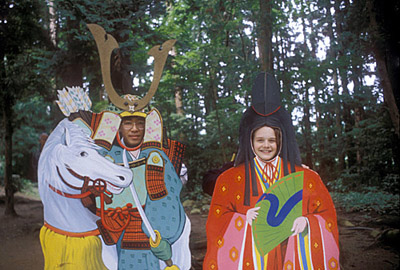 |
|
| |
Dinner at the Katos in Sendai |
|
Hamming it up like a samurai |
|
| |
|
|
|
|
| |
Thanks to Susie, it was a glimpse into everyday Japanese life—learning customs while dining, experimenting with incredibly delicious foods, perfecting my personal version of chopsticks, savoring evening soaks in near-boiling tubs—to, more memorably, gaining an appreciation for the Japanese not always so-quiet sense of humor and evident dignity. |
|
| |
|
|
| |
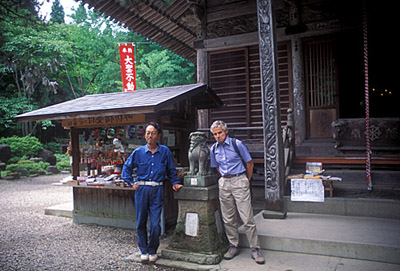 |
|
| |
Lee Juillerat with Yuichi Kato |
|
| |
|
|
| |
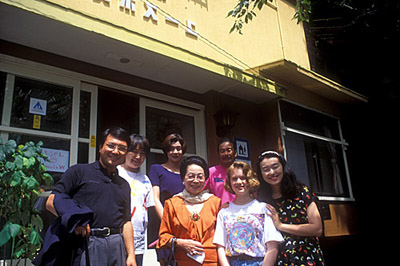 |
|
Before my visit she wrote often, giving me a sense of Sendai. An early letter mentioned the frequency of earthquakes while others offered her impressions of the city: “I really like Sendai. I love how big it is. I like to be downtown at night—it just really feels neat with all the lighted signs and cool breeze … Sendai is not really beautiful, but it’s nicer than most Japanese cities. There are many trees.” |
|
| |
Susie Juillerat with Sendai friends |
|
|
|
| |
|
|
|
|
| |
|
|
| |
She felt welcome. As she wrote, while bicycling to the train station “some guy stopped his car and said, ‘Hi, Susie, I’m a Rotarian!’ ” She also wrote about a man who happily yelled out of his truck window, “Hello American!” noting, “It happens all the time.” |
|
| |
|
|
| |
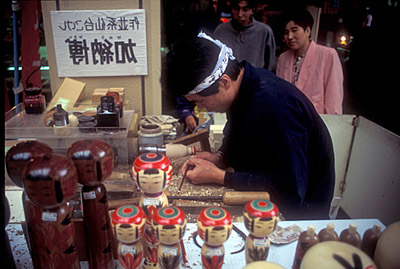 |
|
| |
Sendai craftsman making kokeshi dolls |
|
| |
|
|
| |
Along with its friendliness, Sendai is known for kokeshi, dolls handmade from wood. They have a simple trunk, no arms or legs, an enlarged head with a few thin, painted lines that define the face and a body with simple floral designs. During her stay, Susie, then a high school junior, visited kokeshi-making factories and collected several. During my visit, I saw kokeshi made by artists in parks, including one known for its tall, stone Buddha, where Susie visited often. Three kokeshi dolls sit on a shelf at my home, reminders of my visit and of Susie.
The dolls and other items she brought home, took on extra meaning a few years later. Susie, who was stricken with lymphoma cancer in the seventh grade, had been regarded a “cure” and was given a medical go-ahead before going to Japan. But two years after returning her cancer returned even more aggressively. She died in December 1996, only days before her 21st birthday.
Re-reading Susie’s letters refreshes my memories of Sendai and of her, but there's another reason why I retrieved her letters. One includes the names, addresses and telephone numbers of the families she lived with—the Katos, the Matsuras, the Adachis, the teachers and staff at Tokiwagi Gakuen High School and unknown others. I've sent them letters and tried to make telephone contact but, so far, I haven't connected.
I’ve never forgotten the love and kindness they gave my daughter. Now it’s my turn. |
|
| |
|
|
| |
|
|
|
|
| |
|
|
|
|
| |
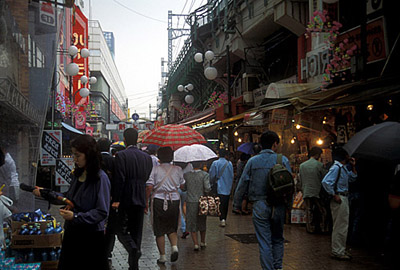 |
|
|
|
| |
Images of Sendai and Japan |
|
| |
|
|
| |
Lee Juillerat lives in Klamath Falls, Oregon, where he writes and photographs for a daily newspaper and freelances for a variety of magazines. He can be contacted at [email protected]. |
|
|
|
|


